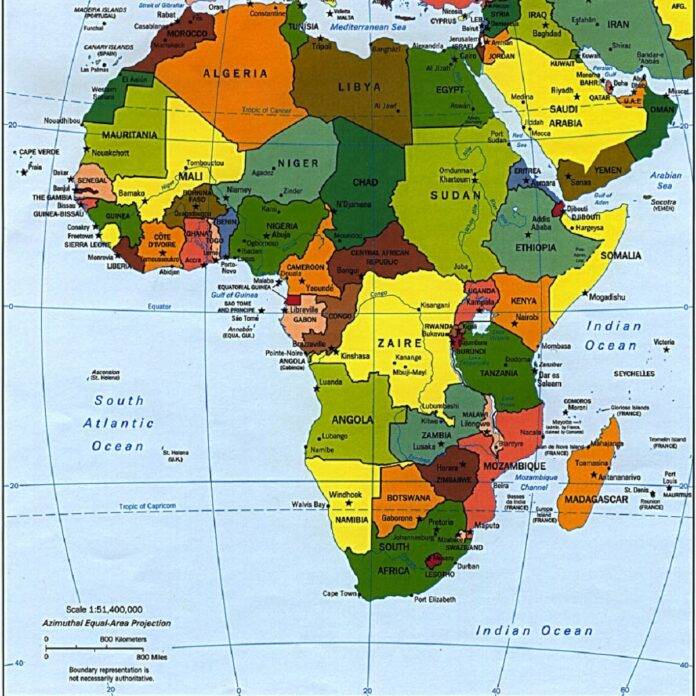“`html
The African Growth and Opportunity Act: An Overview
The African Growth and Opportunity Act (AGOA), a cornerstone of U.S.-Africa trade relations, has been pivotal in fostering economic growth and development across the African continent, particularly in South Africa. Enacted in 2000, AGOA provides eligible sub-Saharan African countries with duty-free access to the U.S. market for thousands of products. This trade preference has served as a significant catalyst for South Africa’s export growth, enabling the country to diversify its economy and enhance its global competitiveness.
The Uncertainty Surrounding AGOA
As the debate intensifies regarding the future of AGOA, concerns have arisen over the potential impact of U.S. domestic politics on this critical trade program. In particular, the possibility of U.S. President Donald Trump withdrawing from AGOA has left many South African stakeholders anxious about the implications for their economy. The Trump administration has demonstrated a willingness to reassess trade agreements and prioritize America-first policies, raising questions about the sustainability of AGOA in its current form.
The Economic Impact of AGOA on South Africa
The economic significance of AGOA to South Africa cannot be overstated. Over the years, the act has facilitated increased trade between the U.S. and South Africa, resulting in job creation and economic development. South African products, including agricultural goods, textiles, and manufactured items, have found a favorable market in the U.S., bolstering the country’s export revenues.
AGOA has also encouraged foreign direct investment (FDI) in South Africa, as U.S. companies seek to establish a foothold in the region to take advantage of the trade benefits. This influx of investment has contributed to infrastructure development, skills transfer, and technological advancements, further enhancing South Africa’s economic landscape.
The Need for a “Trump-Proof” Economy
To navigate the uncertain waters surrounding AGOA, South Africa must focus on creating a “Trump-proof” economy—one that is resilient to fluctuations in U.S. trade policy. This approach entails diversifying trade partnerships beyond the United States, strengthening domestic industries, and fostering innovation.
- Diversification of Trade Partners: South Africa should seek to engage with emerging markets in Asia, Europe, and other regions to reduce its dependency on the U.S. market. Establishing and deepening trade relations with countries such as China, India, and those within the African Continental Free Trade Area (AfCFTA) can provide alternative avenues for growth.
- Strengthening Domestic Industries: Investing in local industries and fostering entrepreneurship can enhance South Africa’s economic resilience. By promoting value-added products and services, the country can reduce its reliance on exports to any single market, thereby mitigating the risks associated with potential AGOA withdrawal.
- Fostering Innovation: Encouraging research and development (R&D) and embracing technological advancements can strengthen South Africa’s competitive edge. By focusing on innovation across various sectors—such as agriculture, manufacturing, and services—South Africa can position itself as an attractive destination for investment and a leader in emerging industries.
Engaging Stakeholders and Policymakers
To effectively implement these strategies, South Africa must engage a wide range of stakeholders, including government officials, business leaders, and civil society organizations. Collaborative efforts can lead to the formulation of comprehensive policies that address the challenges posed by uncertain trade dynamics.
Policymakers should consider establishing task forces to monitor changes in international trade policies and their potential impacts on the South African economy. Regular dialogues between government and industry can help identify opportunities for growth and innovation, ensuring that South Africa remains responsive to global market trends.
Conclusion: A Path Forward
The future of the African Growth and Opportunity Act remains uncertain, and the stakes for South Africa are high. However, by taking proactive measures to diversify its economy, strengthen domestic industries, and foster innovation, South Africa can create a more resilient economic framework that is less susceptible to external shocks.
While the possibility of U.S. policy changes looms large, South Africa has the opportunity to redefine its economic trajectory. By focusing on sustainable development and fostering strong trade relationships with various partners, the country can thrive in an increasingly competitive global landscape. In doing so, South Africa can mitigate the risks associated with the potential withdrawal of AGOA and secure its economic future.
“`




